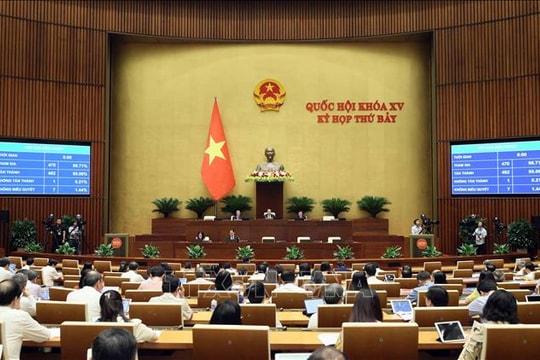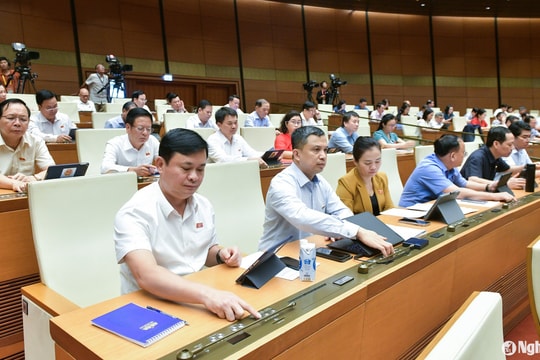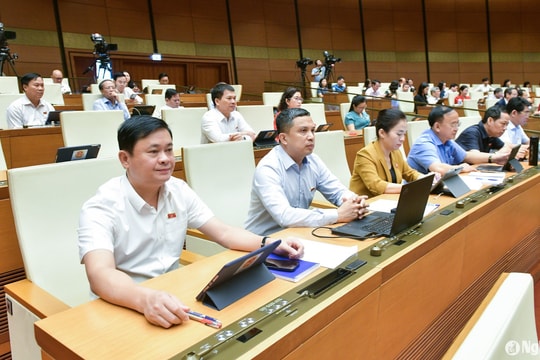National Assembly delegates from Nghe An discuss the draft Law on Urban and Rural Planning.
On the morning of June 28, continuing the 7th Session, the 15th National Assembly discussed in the hall the draft Law on Urban and Rural Planning. Comrade Tran Thanh Man - Politburo member, Chairman of the National Assembly chaired.
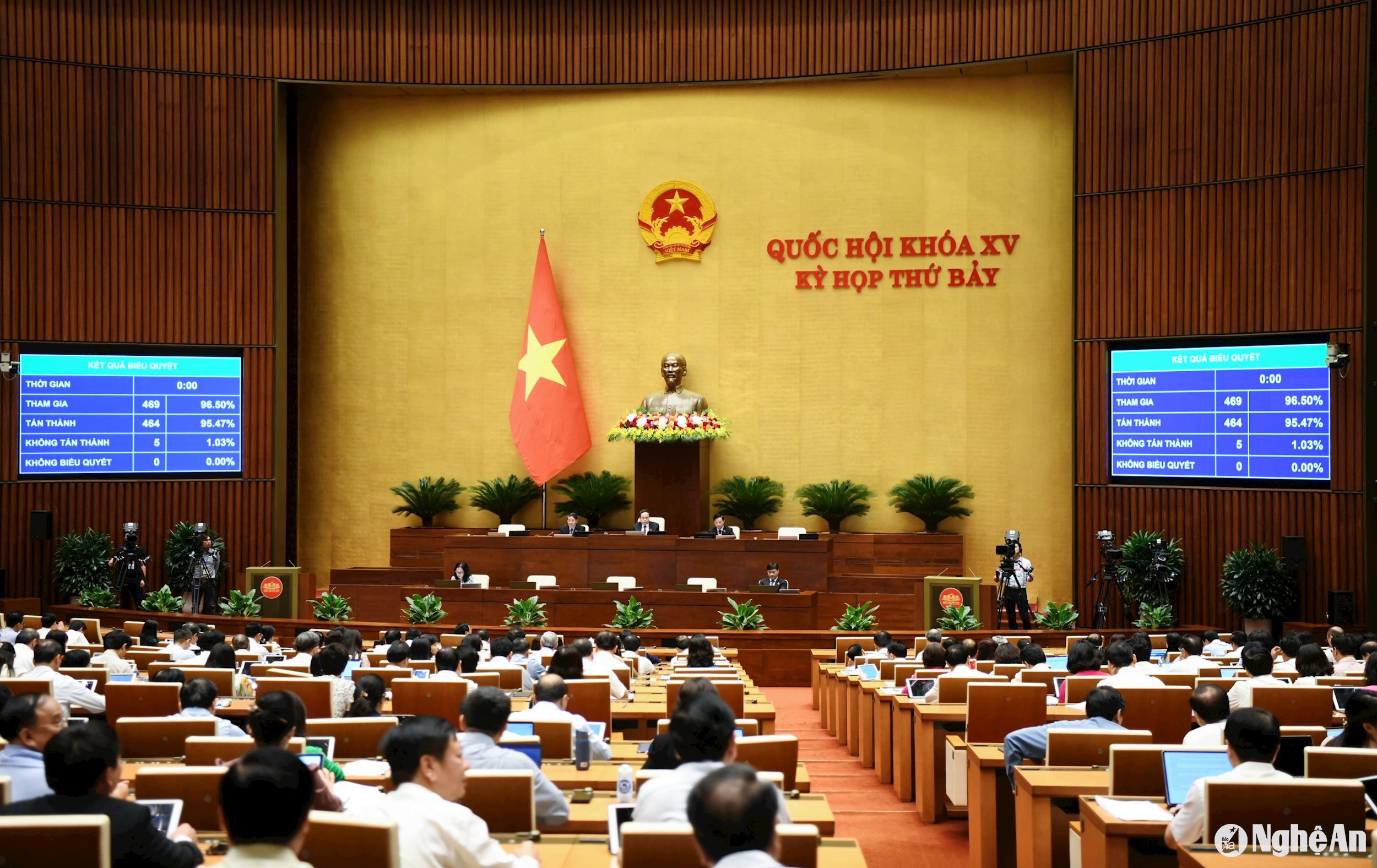
Speaking at the discussion, delegate Thai Thi An Chung - Member of the Provincial Party Executive Committee, Deputy Head of the National Assembly Delegation of Nghe An province expressed her agreement with many contents of the draft law; in which she agreed that the draft has many regulations on important contents to serve as a basis for the establishment and implementation of urban and rural planning.
Specifically, the draft clearly stipulates the urban and rural planning system according to planning types and levels, determines the relationship with national planning, regional planning, provincial planning and specialized technical planning, ensuring consistency and synchronization in planning.
.jpg)
“We also expressed our agreement on the policy of strengthening decentralization and delegation of power in the establishment, appraisal, approval and adjustment of urban and rural planning; and the simplification of procedures in the establishment, appraisal and approval of planning, to meet the requirements of improving the investment and business environment,” said the delegate of Nghe An.
The Deputy Head of the National Assembly Delegation also expressed his views on two groups of contents and requested the drafting agency to continue research to have clearer regulations.
First of all, regarding the planning period, according to the provisions of the 2017 Planning Law, provinces and centrally run cities must establish and approve provincial planning according to the 10-year planning period.
Meanwhile, the draft Law stipulates that urban and rural planning for general planning has a term of 20-25 years, and the vision of the general planning of centrally-run cities is 50 years. This is the content that inherits the current regulations of the 2009 Urban Planning Law and the 2014 Construction Law.
According to delegates, this lack of consensus leads to the process of implementing planning options to integrate forecasts, making it difficult to ensure synchronization, compatibility, and timing of connection.
Cities under the Central Government are not required to develop provincial-level land use plans, but must develop provincial-level land use plans. Districts, cities, and towns under centrally-run cities; cities and towns under provinces that have a master plan or zoning plan approved in accordance with the provisions of the law on urban planning are not required to develop district-level land use plans, but must base on the master plan or zoning plan and land use targets allocated from the provincial-level land use plan and local land use targets to develop annual district-level land use plans.
“If the period of these plans is not unified, it will lead to difficulties in planning land use at the provincial and district levels,” Ms. Thai Thi An Chung pointed out the unreasonableness and suggested that the drafting agency conduct research to find more suitable solutions for this issue; it is possible to stipulate additional time in the short-term period of 5 years, 10 years to synchronize with other plans.
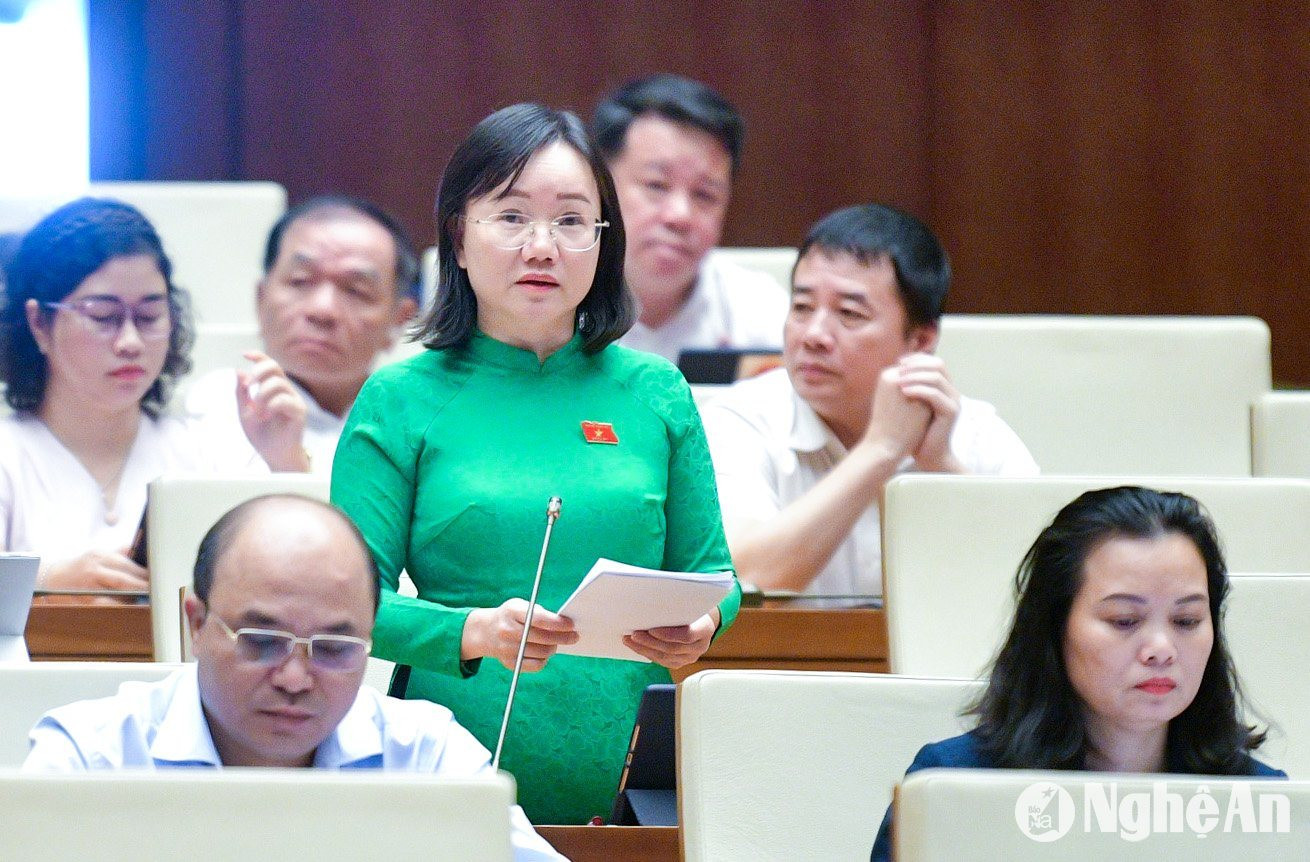
Regarding decentralization and delegation in urban and rural planning construction and management, the delegate of Nghe An delegation said: In the past, the organization of establishment and partial adjustment of urban planning in localities has lacked initiative due to regulations that the organization of establishment of general planning for new urban areas with a forecast population size equivalent to that of type III urban areas or higher is the responsibility of the Ministry of Construction; the partial adjustment of general urban planning is under the approval authority of the Prime Minister.
The provisions of the Draft Law aim to strengthen decentralization and delegation of authority in the work of formulating, appraising and approving urban planning, but it is necessary to clarify the basis and necessity of the regulation that the Prime Minister approves the general planning of urban areas of type I or higher, as well as the requirement that the Ministry of Construction must give opinions on the general planning of urban areas of type III or higher before the provincial People's Committee approves the planning.
Regarding the case of planning stipulated in the draft Law that requires written opinions from the Ministry of Construction before approval by the Provincial People's Committee, delegate Thai Thi An Chung said that the draft also needs to clarify whether it is necessary to ask for opinions from the Ministry of Construction when localities make local adjustments or not? What measures are stipulated to ensure that planning approved by localities is not arbitrarily adjusted, disrupting the planning, leading to a decline in the quality of the living and working environment in urban and rural areas.
.jpg)
“In addition, along with decentralization and delegation of power, it is necessary to continue to research and strengthen the capacity of all levels in the work of establishing, appraising and approving all types of planning. In reality, the capacity of professional staff is very different between administrative management levels and even within the same administrative management level between localities; while urban and rural planning is a field that is both comprehensive and very specialized,” the Deputy Head of the Nghe An National Assembly Delegation stated the current situation, thereby suggesting that it is necessary to consider and evaluate local resources, especially in rural areas, to have solutions to strengthen capacity and clearly stipulate the coordination between agencies in control to improve the quality of planning.
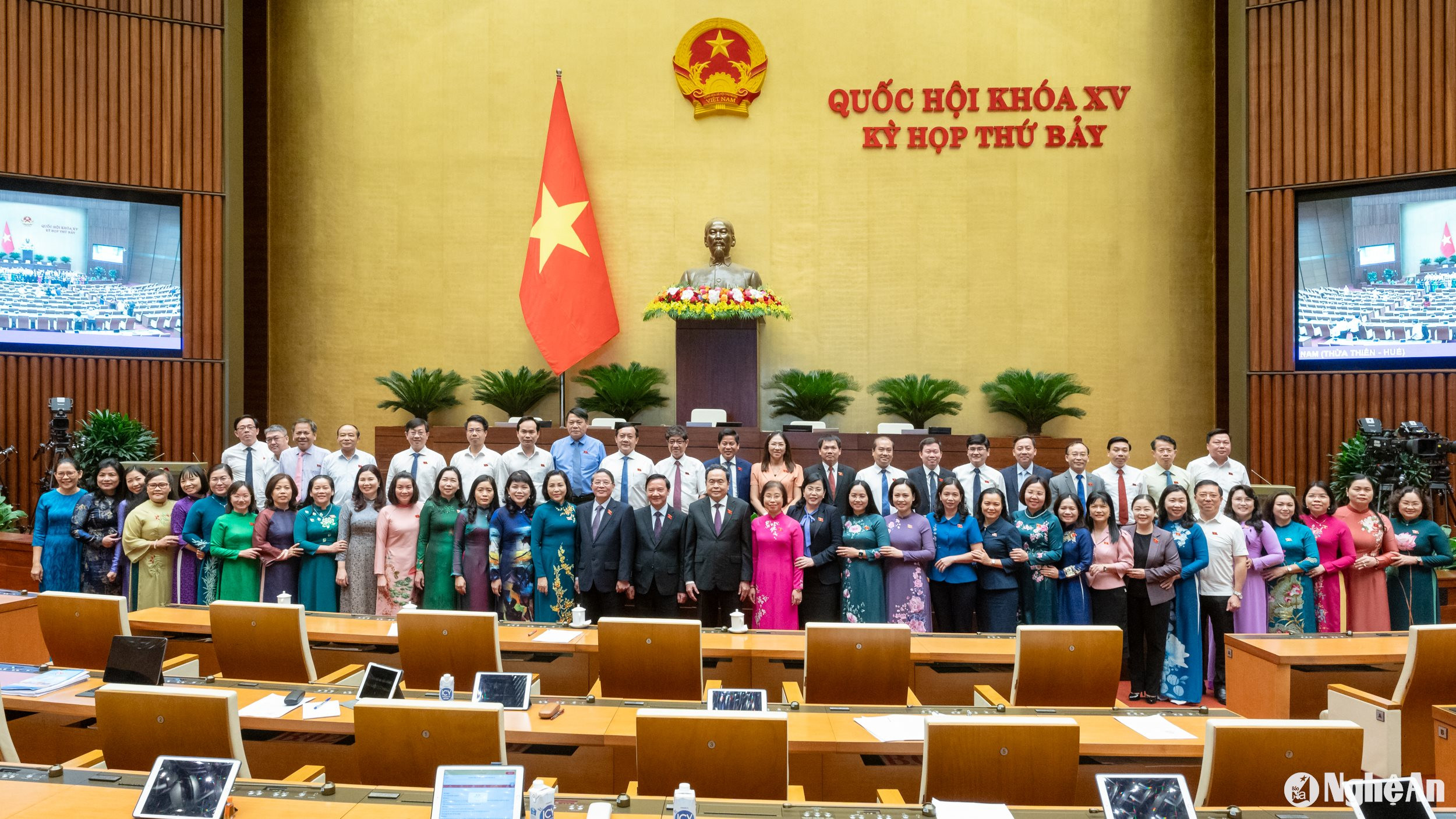
Also in the working program this morning, the National Assembly voted to pass the Law on the Capital (amended) and the Resolution of the National Assembly on the investment policy of the North-South Expressway construction investment project in the West, Gia Nghia (Dak Nong) - Chon Thanh (Binh Phuoc) section.

